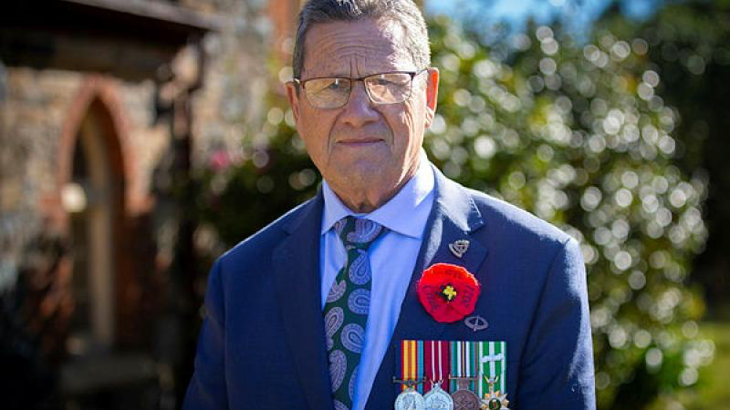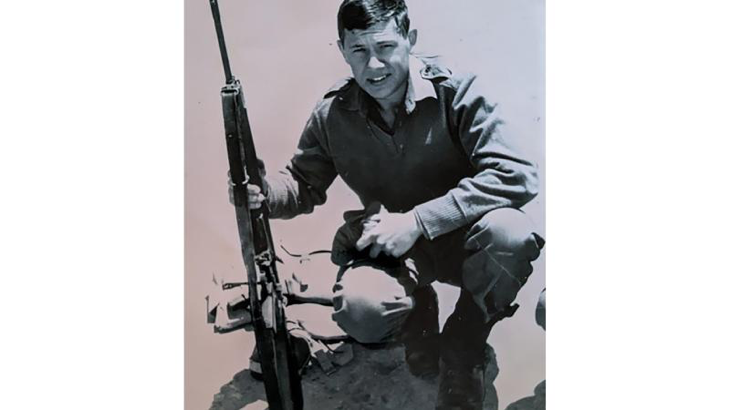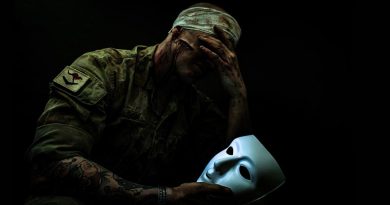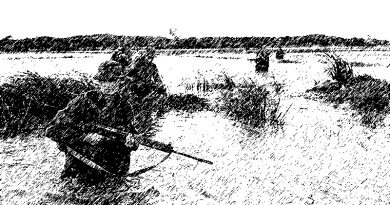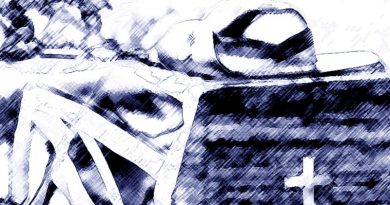Memories of a Vietnam veteran

In 1969 at the age of 20, Rudolph Stachow was on his first patrol in Vietnam as an infantryman.
CAPTION: Vietnam veteran Rudolph Stachow at this year’s Anzac Day service, Majors Creek, NSW. Story and photo by Corporal Luke Bellman.
During an operation, his 9th Battalion, the Royal Australian Regiment (9RAR), platoon was to cross a swamp and set up an ambush on a tidal river in Phouc Tuy Province.
His section was to initiate any contact during an ambush; they set up closest to the river bank under cover of medium-height scrub.
“I put down my groundsheet; the tide started to proceed outwards and exposed crab holes, these things started to push through my groundsheet,” he said.
“My response was to discourage them by using the handle of my bayonet. Next minute I was told to shut up.”
A sampan floated down towards his section’s position with six to seven north Vietnamese and Vietcong on board.
Then all hell broke loose.
“They didn’t have a chance to shoot back. Fortunately for us, the closest they got was about six metres,” Mr Stachow said.
The platoon regrouped and proceeded down river to continue its part of the battalion’s operation.
“It was my first contact; there were others after this but I don’t remember them as well,” he said.
9RAR went home in November 1969, but Mr Stachow was reposted to the 5th Battalion, the Royal Australian Regiment (5RAR), which was now deployed to Vietnam.
He arrived at Fire Support Base (FSB) Cape, Phuoc Tuy Province, with others from 9RAR and fresh re-enforcements from Australia in support.
He was asked with some others to volunteer to be a platoon medic.
“It’s a fairly dangerous job. The good thing for me being a platoon medic was getting rid of an SLR rifle and getting issued with an M16, which is considerably lighter,” Mr Stachow said.
He did a four-day stretcher bearer course at FSB Cape, run by the battalion doctor.
He was also issued with a medical satchel that included syrettes of morphine, scalpels, scissors, tubes of antiseptic cream and bandages.
Attached to the shoulder strap of the satchel were three field dressings.
“I remember most of these were dated 1946, which was before I was born,” Mr Stachow said
“I had no medical training previously, but the doctor must have thought I was capable to handle the responsibility in battle situations.”
He was assigned to the tracker platoon of 5RAR, where he got to be mates with one of the dog handlers who introduced him to Juno, a replacement dog who only arrived in Vietnam in mid-1969.
Juno was adopted by the Australian Army from a Sydney dog shelter for $2, and like other military dogs, was named after a Roman emperor.
“Juno seemed to always have a perpetual smile from ear to ear,” Mr Stachow said.
“He demonstrated exceptional skills in navigating and performing in combat situations, even amidst the noise of gunfire and artillery.
“He formed a significant bond with his handler and the troops.”
After serving with multiple battalions, Juno was supposed to retire in 1971 and be adopted by an American civilian in Vietnam.
His fate, like many military dogs post-service, remains unknown, especially after the North Vietnamese army swept through the area.
Juno was awarded the South Vietnam War Dog Operational Medal and the Canine Service Medal.
In 1970, Mr Stachow returned to Australia a different person and was given leave.
His parents organised a welcome-home party with his neighbours, but he locked himself in his room and wouldn’t come out, stricken by relief and guilt.
“Eventually I was discharged. I just couldn’t hack it and I spent two-and a-half years wandering around overseas,” Mr Stachow said.
“I got a job in the public service in Canberra. I felt like I couldn’t tell anyone I was a Vietnam veteran.
“People say Vietnam veterans killed people and all that sort of stuff, so I felt a sense of shame and a sense of guilt; this went on for about 25 years. I sort of got over it.”
Mr Stachow said his lasting memory was of the camaraderie between troops.
“The experiences in the infantry battalions were often bloody and horrific in dense jungle. We always called upon our strengths,” he said.
“We sometimes had to go beyond endurance, beyond physical pain, but whatever strengths we had we made sure that we didn’t let our mates down.
“There was always a sense of determination to get the job done and to protect each other.”
CAPTION: Vietnam veteran Rudolph Stachow during an operation in Phouc Tuy Province Vietnam, 1969.
.
.

.
.

